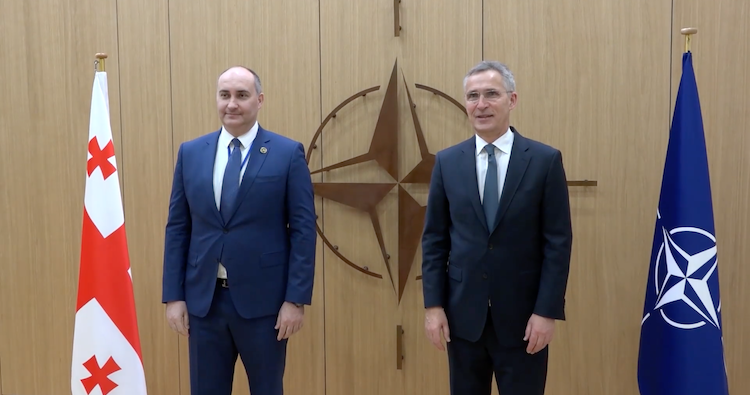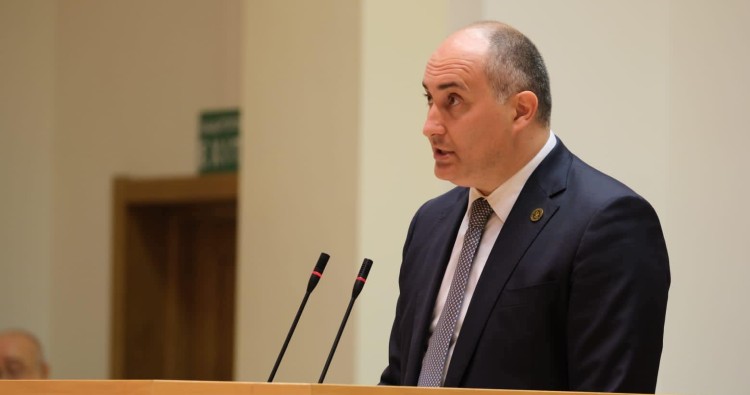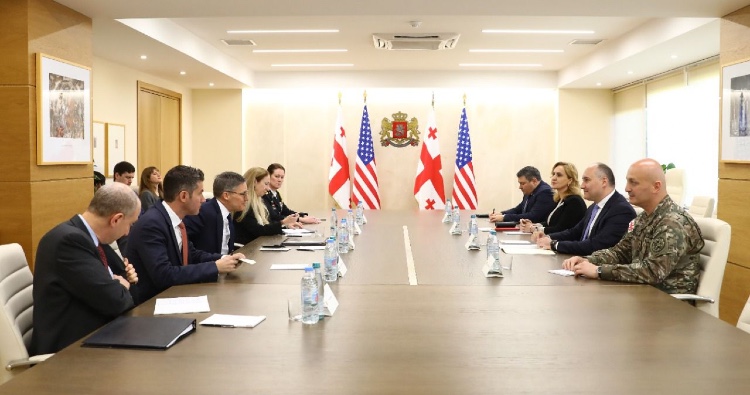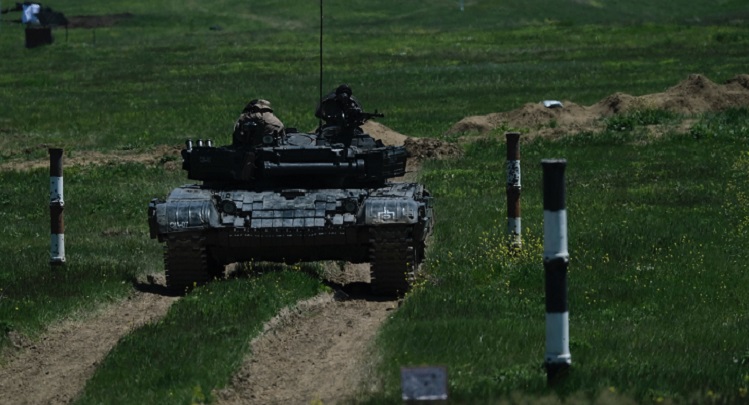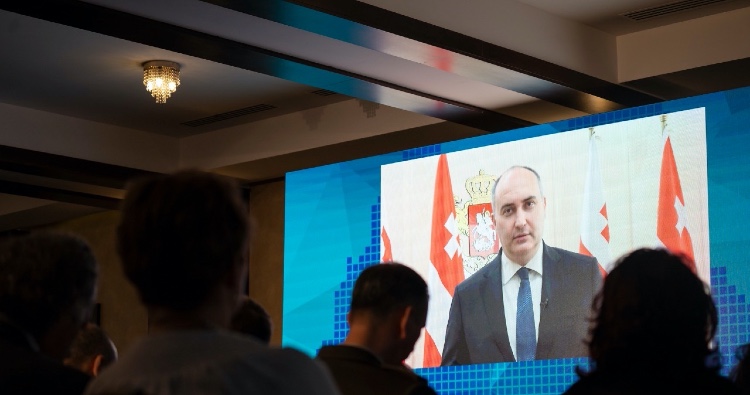Defence Minister notes “great challenges” for non-NATO member European states in Parliament address
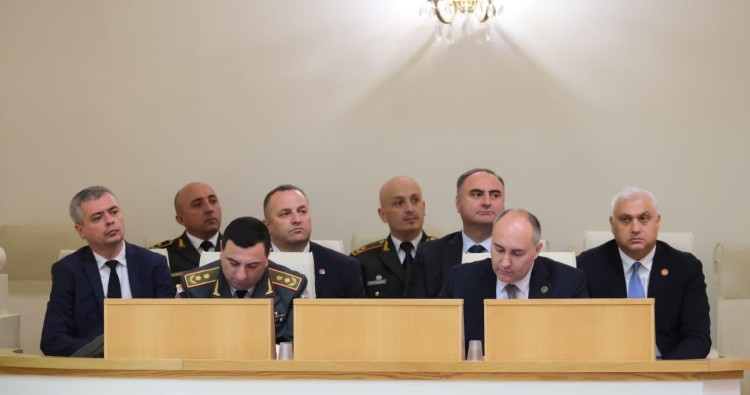
Burchuladze thanked the US - which he called Georgia’s “main strategic partner” - for its “effective and unwavering support”, including through financial aid and assistance in developing Georgia’s cyber defence. Photo: The Ministry of Defence
Georgian Defence Minister Juansher Burchuladze noted “great challenges” for non-NATO member states in Europe on the backdrop of Russia’s invasion of Ukraine, while also detailing measures for increasing Georgian Defence Forces capabilities and the Ministry’s work for improving the livelihoods of servicemembers, in a Parliament address on Thursday.
Burchuladze said non-NATO member countries, including Georgia, faced challenges amid the “difficult” security environment in the world, and in the Black Sea region in particular, amid the Russian invasion, which he condemned as a “major challenge” for the global order and security architecture of Europe.
The Minister stressed the importance of Georgia continuing to pursue a “pragmatic” and “principled” policy on the matter, including through deepening cooperation with international partners and realising its European and Euro-Atlantic integration.
[Georgia’s] application for European Union membership, if approved, will be not only a step forward in the political choice of our nation and increase Georgia's economic attractiveness, but also strengthen the security component", he told lawmakers.
Burchuladze highlighted the significance of protecting the national airspace, and added a modernised Georgian aviation would further increase the country's defence capabilities. He noted the Ministry had begun upgrading and modernising armed forces’ anti-aircraft systems under a 2020 agreement signed with the Israeli defence industry company Rafael. The Ministry also worked to equip a joint Georgia-France air surveillance centre, he noted.
The process of restoring and modernising the aircraft fleet of the defence forces will continue within the Ministry’s long-term development plan, the official told MPs, adding the latter also included restoring existing radar systems and purchasing anti-aircraft missiles for the GDF.
Burchuladze also revealed an anticipated start of production of operational and tactical unmanned aerial vehicles in Georgia, while also telling legislators strengthening anti-armour equipment for the forces was “one of the main priorities”, with a second batch of the American-made Javelin anti-tank systems expected to arrive in Georgia “shortly”. The Ministry has made a request for purchase of a third batch from its US partners, he added.
Work has also begun on repairing and upgrading GDF’s existing self-propelled artillery systems, the Defence Minister also highlighted.
Burchuladze also spoke about social measures at the Ministry, stressing care for the military and their families remained as “top” priority for the state body, including through provision of servicemembers with flats - an initiative launched as a mark of appreciation for multi-year professional military service in the armed forces.
Burchuladze thanked the US - which he called Georgia’s “main strategic partner” - for its “effective and unwavering support”, including through financial aid and assistance in developing Georgia’s cyber defence.
 Tweet
Tweet  Share
Share

